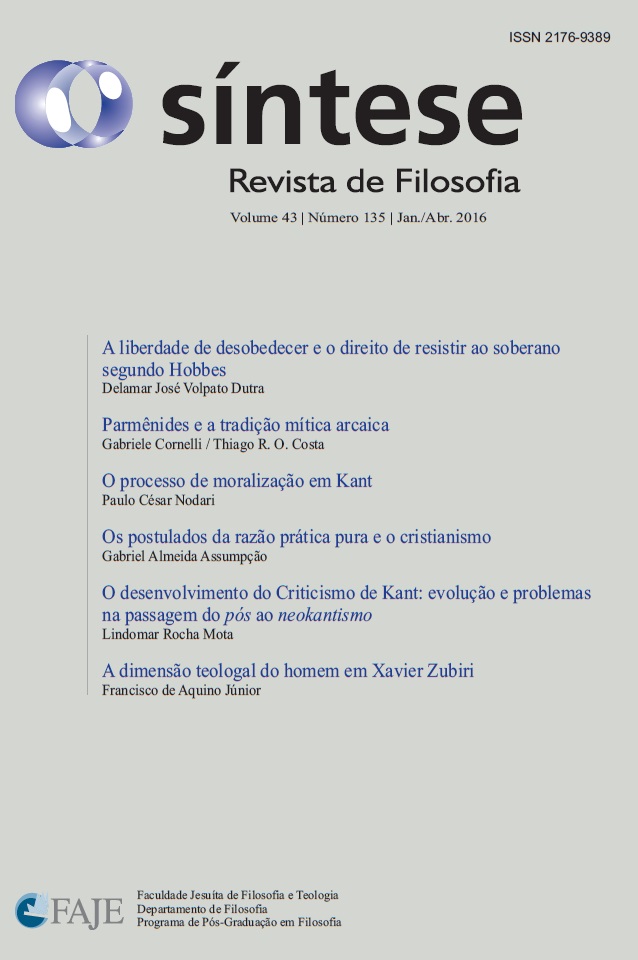OS POSTULADOS DA RAZÃO PRÁTICA PURA E O CRISTIANISMO
DOI:
https://doi.org/10.20911/21769389v43n135p99-120/2016Palavras-chave:
Cristianismo, Kant, moral, postulados, razão prática, sumo bemResumo
Resumo: A leitura da Crítica da Razão Prática permite perceber que a moral kantiana não consiste em mero formalismo, abrindo espaço para uma discussão sobre os fins morais. O fim último a que o ser racional cuja vontade é determinada pela lei moral se propõe a produzir é o conceito de sumo Bem, ligação sintética a priori entre virtude como causa e felicidade moralmente condicionada como efeito. Ciente das dificuldades para a produção do objeto proposto, Kant recorre aos postulados da razão prática pura (liberdade, imortalidade da alma e existência de Deus) e estabelece um contraponto entre o cristianismo e escolas pagãs da antiguidade que não aceitariam tais pressuposições (na visão de Kant), os estóicos e os epicuristas. Buscamos mostrar, com o presente estudo, a fecundidade do diálogo entre Kant e o cristianismo, bem como o esforço kantiano de tentar fazer jus a diferentes dimensões do ser humano: tanto a afetividade quanto a moralidade.
Abstract: Reading the Critique of Practical Reason enables us to realize that Kantian morality is not mere formalism, but is rather an opening to discuss moral ends. The ultimate goal of the rational being, whose will is determined by moral law, is the concept of the Highest Good, the a priori synthetic connection between virtue as a cause and a morally conditioned happiness as an effect. Aware of the difficulties related to the proposed object, Kant resorts to the postulates of practical reason (freedom, immortality of the soul and the existence of God) and counterpoints Christianity with two ancient pagan schools, the Stoics and the Epicureans, which, according to the philosopher, would not accept such assumptions. The present study aims to show there is a fecund dialogue between Kant and Christianity, as well as the author's attempt to do justice to the following dimensions of the human being: affectivity and morality.






























